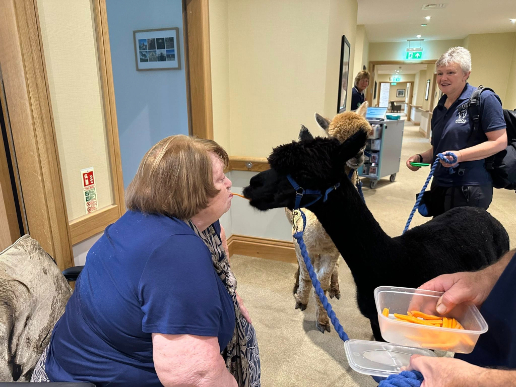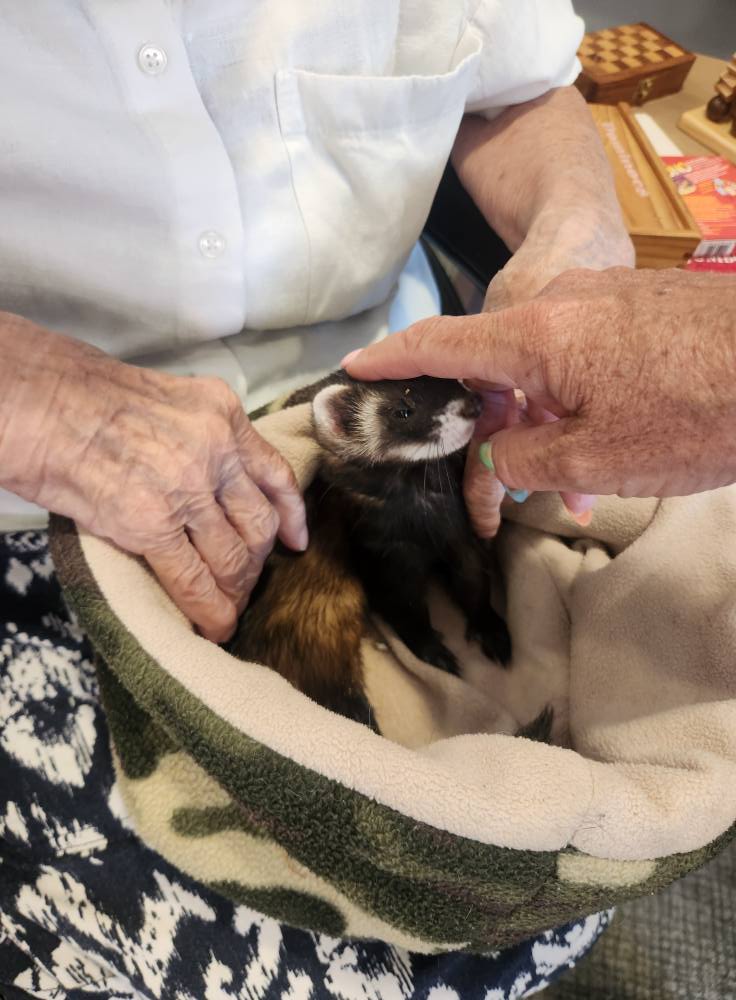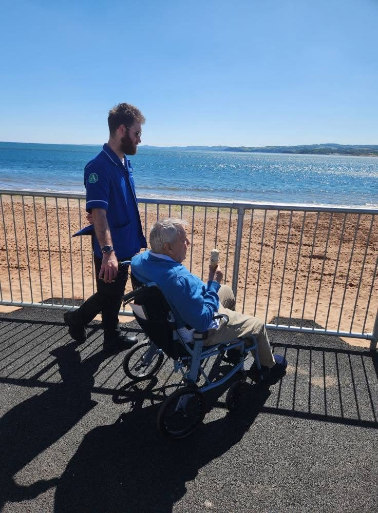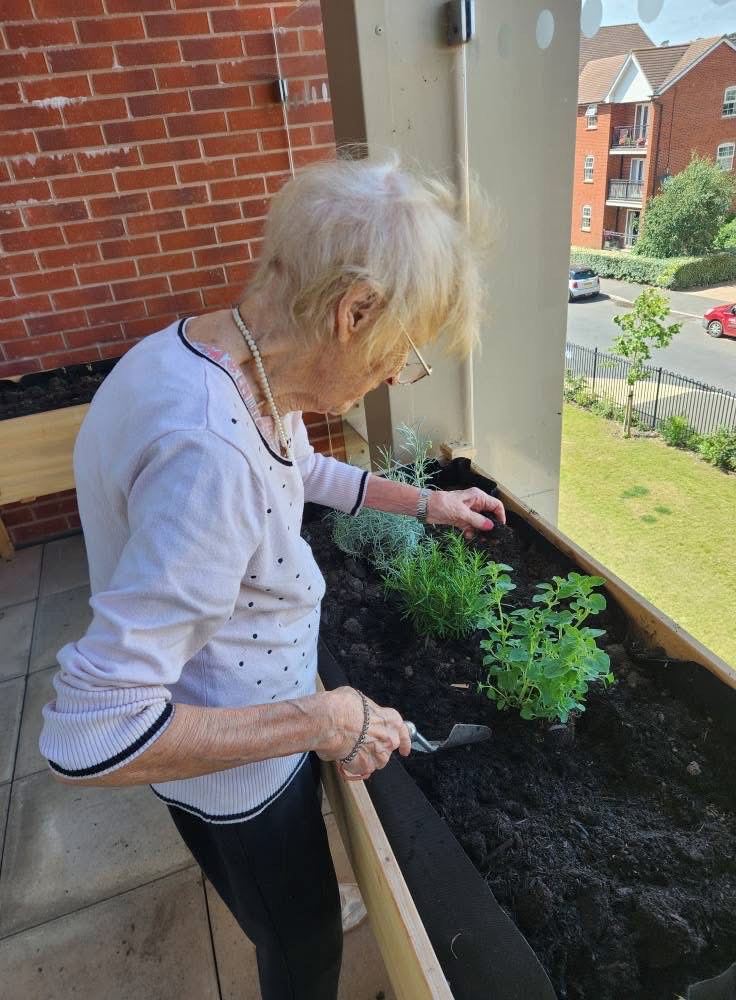How to Get an Elderly Person Into a Care Home
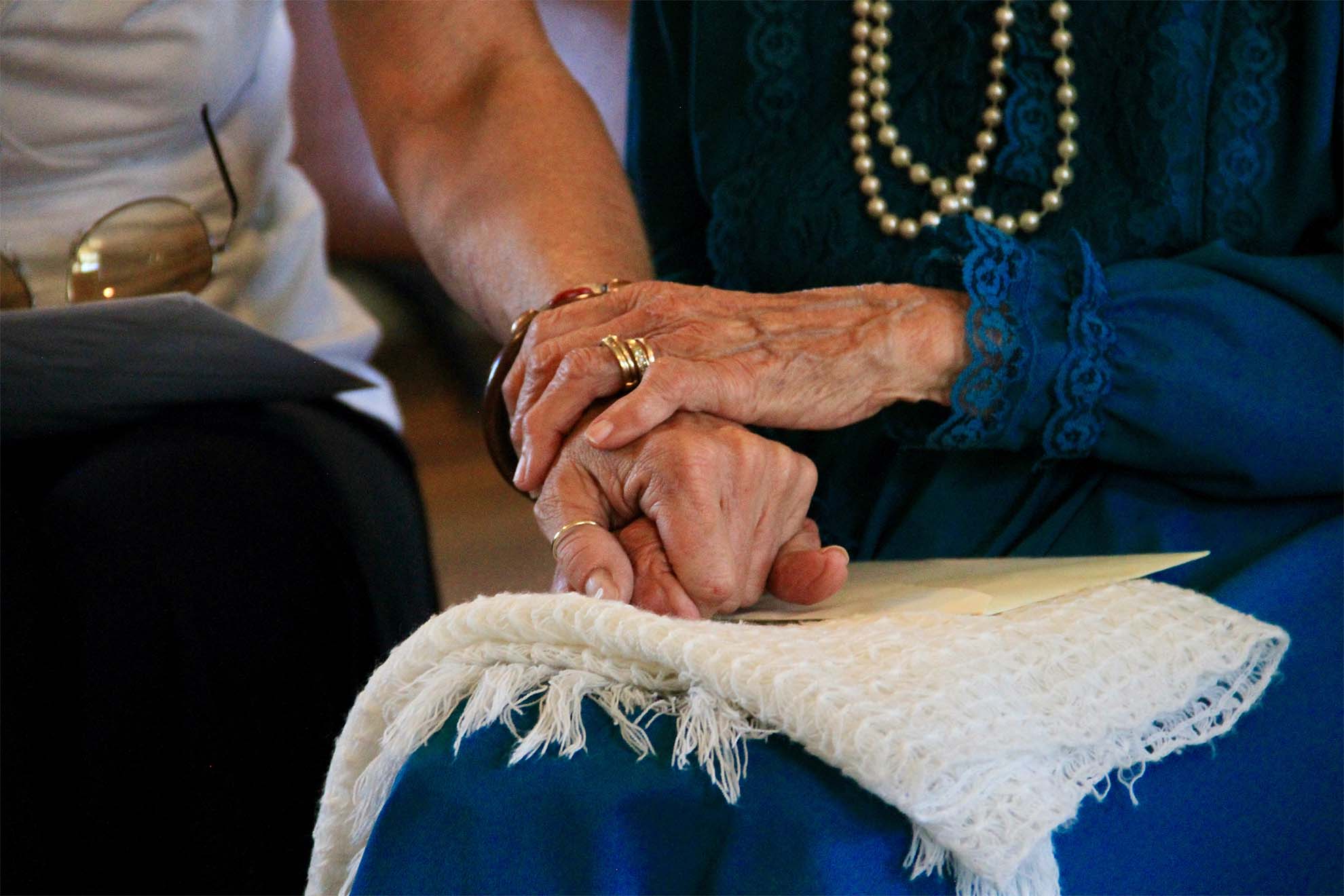
As we age, it is common for elderly residents to experience fundamental changes such as a decline in health, well-being, or mental capacity, resulting in them needing additional assistance with daily living. Sometimes this will lead to loved ones not being able to care for the elderly in their own home anymore and different forms of care may need to be considered such as care homes, residential homes, or nursing homes.
For those at this stage, life at home can become difficult for both the older person and their family members. Going into a care home can provide 24/7 medical and personal care to elderly people with all kinds of needs, relieving them of any stress or concerns they may be experiencing in their day-to-day lives. Whether you are a family member of someone who requires elderly care or you yourself are a care seeker, this blog will outline the key factors to consider in how to get an elderly person into a care home whilst making the transition as stress-free as possible.
Have An Open Conversation With the Care Seeker
To help reduce any complex emotions that elderly residents may be experiencing with regard to moving into a care home, it is essential to have an open conversation with them at the right time. Accepting they need to move into a care home and change their current routine can be difficult for them so an open conversation before the process begins can be really helpful. When your loved one becomes more comfortable with the thought of transitioning, make sure to get in contact with multiple care homes and nursing homes and book tours with them so they can understand just what the transition entails.
Visiting care homes also allows you or your family member to ask any questions or raise any concerns you may have. Whether you are looking into a residential care home, a nursing home, or a different type of care home entirely, there will be numerous health professionals on hand to answer your queries.
It is important to understand and reassure your loved one that despite moving into a care home, they can still continue to live independently and that this is also an opportunity to enjoy a better standard of living alongside like-minded individuals who can end up becoming close friends. Living in and maintaining your own home can become isolating and overwhelming, so elderly care can be a fantastic solution. Receiving around-the-clock support can help individuals overcome any complex emotions they are feeling as household chores and personal care will be taken care of by care home staff.
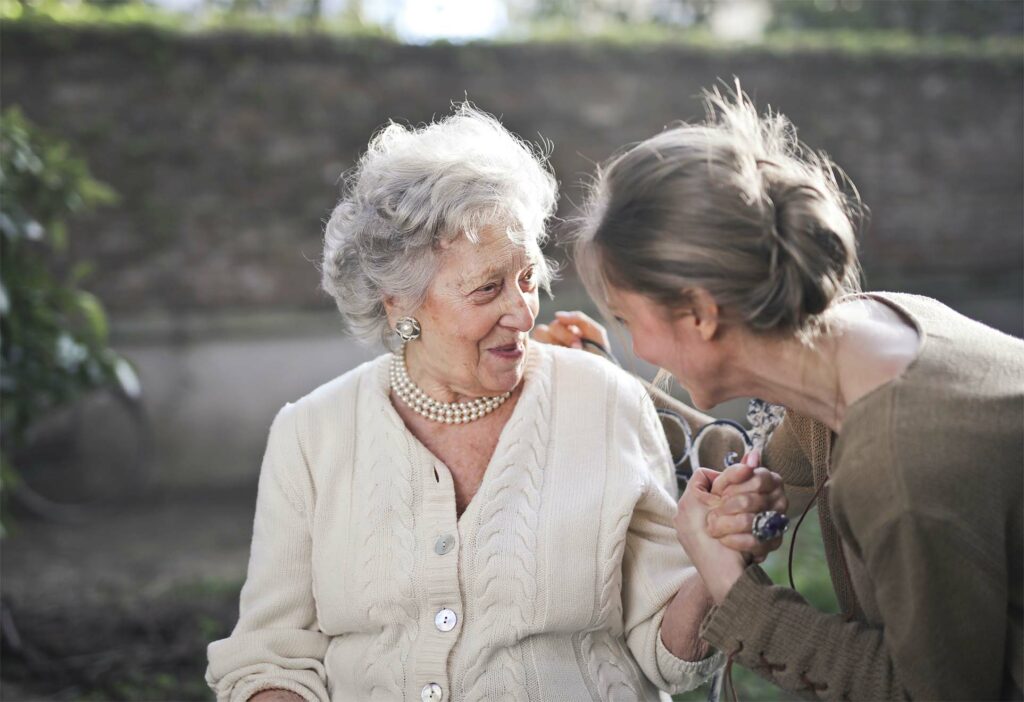
Keep the Care Seeker Involved in Any Decisions & Discuss the Benefits
When it comes to making decisions about going into a care home, it is essential to keep elderly residents involved throughout the entire process and make sure that they agree with any choices that need to be made. After all, they are the ones who will be directly affected by the outcome. Start by discussing any benefits with your relative, allowing them to feel optimistic during this potentially challenging time. Respect their wishes and take into account any ideas they may have, ensuring you look for a care home that can cater to these.
Getting your loved one involved in any visits to potential care homes and seeing what medical and personal care they offer to elderly people not only reassures them but also helps them understand the benefits of this transitional phase. For individuals with complex conditions such as dementia, it may be necessary to establish a power of attorney to make decisions on their behalf or can speak alongside them. However, even in these cases, strive to involve them as much as possible in the decision-making process to alleviate stress, concern, and confusion. By keeping your loved one engaged and considering their preferences, you can ensure a smoother and more positive experience as they move into a care home.
Look into Different Care Homes in the Local Area
Whether you are considering a care home, nursing home or residential home, it is essential to do your research into local care homes. When doing your research, make sure both you and your relative have set criteria of what you are looking for as this can help when comparing the homes and figuring out which is the right home for you. This may be specific facilities, social opportunities, or care services. Looking at the care home's most recent inspection report will also give you a better idea of how residents are treated and what lifestyle they are provided with from a professional point of view.
Another way to find out if you are looking into a good care home is by checking their reviews on sites such as carehome.co.uk. You will get a better insight this way into whether the care home meets your expectations as reviews are verified, ensuring they have been left by residents and relatives who have experienced care from the homes firsthand. Being able to live independently and continue with persoanl routines and hobbies is something that you should also look for in a care home as it can provide older people with familiarity and purpose, whilst still having access to full levels of support when they do need it.
Consider the Overall Needs of the Care Seeker
Each care home is unique and will offer its own set of services. The most important factor in the process is establishing the health and care needs of your family member, as this can determine the type of care home they should be in. Some care homes will offer an assessment to offer advice on the specialist care your loved one requires, or you could assess this by other means. Some care types such as dementia care or nursing care will require more support than those who receive residential care.
When living in their own home becomes a struggle and daily chores can't be completed to the level they once could, then it is time to begin considering a care home. Some specialist facilities cater to one care type, but if your relative has care needs that could develop, you should consider a care home that offers multiple care types for different levels as this means they can continue to care for them if their needs change. There is no general answer as to which care home is the right one as it is all down to the individual needs and preferences of the care seeker.
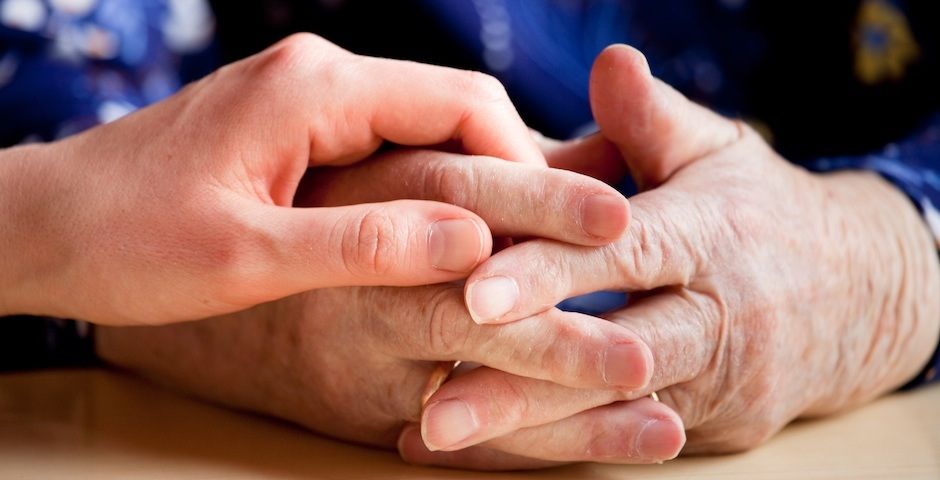
Understand All Types of Costs
When comparing the costs of moving into a care home, the UK is considered to be higher than other countries. Because of this, it is essential to understand what services come included in your package, whether self-funding is appropriate for you, or if you will require a financial assessment for more support from social services. As part of a care package, there will often be entertainment programmes and day trips to local shops, cafes, or attractions for residents to enjoy but you must check with the care home to see if this comes at an extra cost or not. Others include dentist or optician appointments as a free service, but this is also variable to each care home.
Choosing to live in care facilities can be a big financial commitment and it is essential to come up with a plan that outlines all costs and how this will be funded. If you aren't sure about the costs and require some advice on how to fund this, you should contact your local authority, social care services, or prospective care homes for further assistance.
Seek Advice From a Care Professional or Local Authority
While the internet can be a valuable and credible source of information when it comes to moving an elderly individual into a care home, when the right time comes, seeking guidance from a professional can be a greater point of reassurance and understanding.
Speaking to somebody with industry knowledge, such as a social worker from the local council or local authority can usually provide the answers you need to navigate the challenging transition of moving into a care home. A financial assessment is often carried out that determines if an individual meets the criteria for funding and will then be provided with a top-up fee. These social services can also discuss any worries you or your elderly relatives may have, ensuring all requirements are met and you feel comfortable with the home that you are choosing.
Many care homes offer a complimentary service from their Home Manager or a qualified nurse to help people with an elderly relative find out more information about care homes and how this can be the most appropriate option for them.
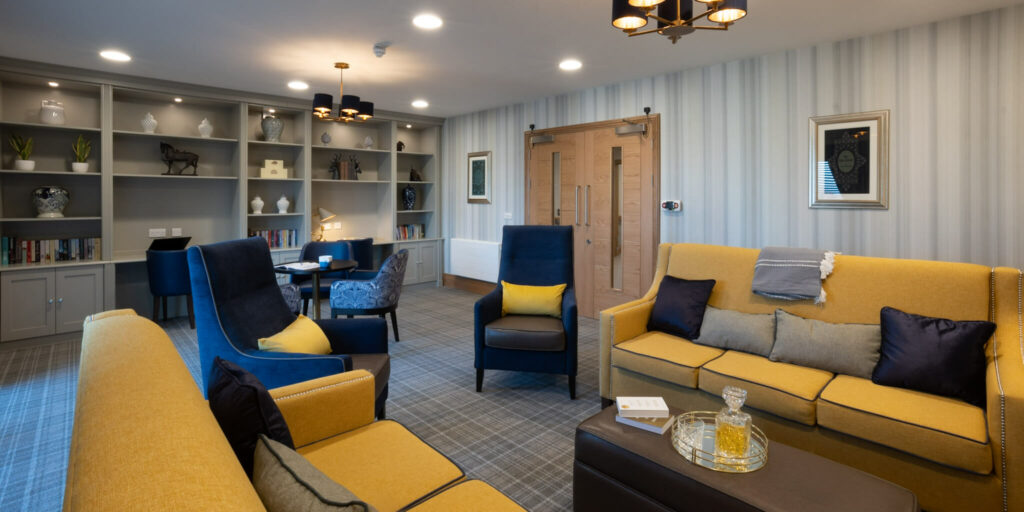

Experience a Full and Meaningful Life in Exeter
Alexander House is a private, newly built all-inclusive care home located in Pinoe, Exeter. Our team offers exceptional levels of nursing care, dementia care, residential care, respite care and palliative care. From the moment an individual decides to reside with us, we collaborate with them and their family members to carry out a care needs assessment and create a care plan that outlines their preferences and the type of care most appropriate to them. Over time, care plans be adapted in line with how their needs develop.
We want Alexander House Care Home to be considered a home away from home by our residents, so we encourage them to personalise their bedrooms however they wish. This way, they have familiar surroundings and can relax from the moment they move in. As part of our first-class facilities and amenities, we offer a full activities programme, a private garden, a hair salon, and a cinema.
Our care home works with the intention of providing residents with a first-class lifestyle. All of our team have undergone extensive training to ensure that we can provide a loving and supportive setting where everybody can thrive.
Find Out More About Alexander House Care Home and Get in Touch
At Alexander House Care Home, we are on hand to answer any questions you or your friends and family may have regarding our care services and facilities. We understand that making the decision to move into a care home can be daunting, so we are here to helo and provide you with peace of mind.
To get in touch with a member of our friendly team, call us on 01392 579777 or email info@alexanderhousecare.com.



